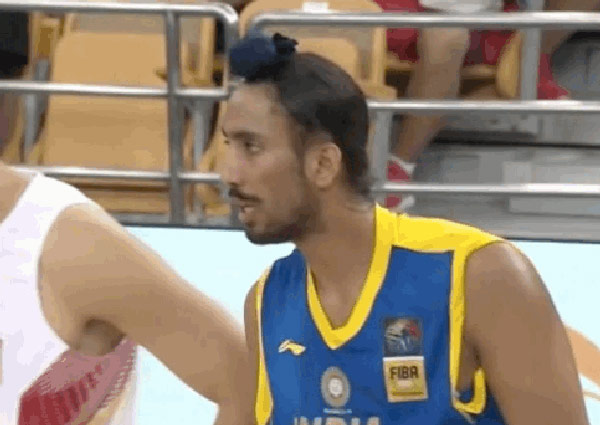Reps. Crowley and Bera applaud the change
International Basketball Federation’s central board has approved change in its rule to allow headgear in international basketball. This would allow Sikhs, Muslims and players from other faiths to wear turbans, in international competitions.
Reps. Joe Crowley (D-NY), Chairman of the Democratic Caucus, and Ami Bera (D-CA), the Co-Chair of the House Caucus on India and Indian American Affairs, cheered the modification.
“We’re thrilled that the board has endorsed a change that, if adopted, will let Sikhs and other athletes who wear articles of faith play,” said Crowley and Bera in a joint statement.
Crowley and Bera led a strong, signature campaign in September last year to reiterate their demand for fairer rules across faiths. Two years ago, in response to an earlier letter led by Crowley and Bera, and strong public pressure, FIBA announced that it would review the issue and begin a testing phase that would allow players to wear head coverings starting in summer 2015, with an ultimate eye toward a final decision after the 2016 Olympics.
“While it should have never taken this long for the board to endorse this change, we’re glad that FIBA is moving ahead. There is no evidence that turbans or religious headgear pose a threat to players, and FIBA’s policy has been not only outdated, but discriminatory. We will be closely monitoring this situation going forward to ensure the entire FIBA Congress adopts the change this coming May. This progress wouldn’t have been possible had it not been for the tireless efforts of advocates and the community. Together, we have lifted our voices and made clear that ‘Let Them Play’ is more than a hashtag – it’s the right thing to do. We’re glad FIBA is moving in the right direction and we look forward to a final change soon,” Crowley and Bera said in a joint statement.
FIBA’s discriminatory policy came to light in 2014 when two Sikh players who were told by referees that they must remove their turbans if they were to play in FIBA’s Asia Cup. The players, who have always played in turbans, were told that they were in violation of one of FIBA’s official rules, which states, “Players shall not wear equipment (objects) that may cause injury to other players.” However, there is no evidence that a Sikh turban poses a threat to cause injury, and other sports leagues, such as Fédération Internationale de Football Association (FIFA) and the National Collegiate Athletic Association (NCAA), allow athletes wearing turbans to participate.
Following the Asia Cup incident, Crowley and Bera led multiple letters signed by dozens of Members of Congress urging FIBA’s board to end its discriminatory policy against players who wear turbans.
In addition to Sikhs, changes to FIBA’s policy could also allow players practicing other religions, such as Islam, to participate in international basketball.
FIBA’s official statement reads: “After initiating a revision process of the headgear rule (Article 4.4.2) of the Official Basketball Rules in September 2014, the Board received a report on the impact of the exceptions applied on a domestic level during a two-year period. It favoured a modification of the rule and issued a mandate for the Technical Commission to come forward with a proposal that would allow headgear to be worn safely by athletes. This will be presented to the Mid-Term Congress in May.”



